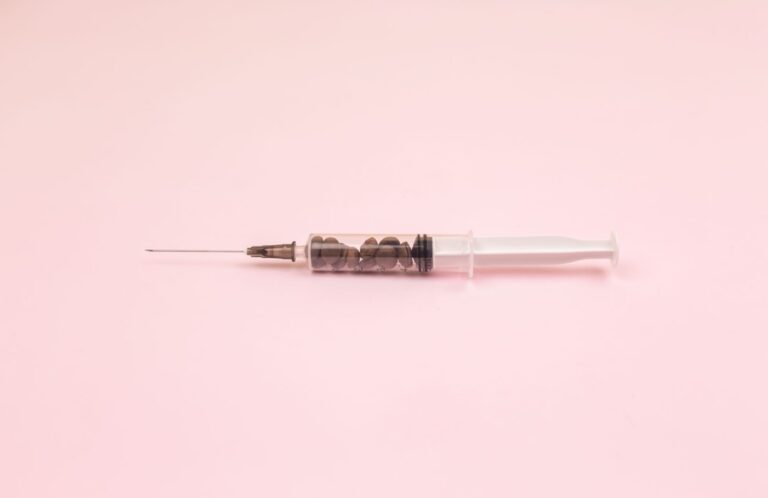Testosterone, a steroid hormone primarily produced in the testes in males and in smaller amounts in the ovaries and adrenal glands in females, plays a pivotal role in various physiological processes. It is classified as an androgen, a group of hormones that contribute to the development of male characteristics. While often associated with masculinity, testosterone is essential for both genders, influencing a range of bodily functions beyond just reproductive health.
The hormone is synthesized from cholesterol and undergoes a series of enzymatic transformations before it becomes biologically active. The significance of testosterone extends far beyond its role in sexual differentiation and reproduction. It is intricately involved in the regulation of muscle mass, bone density, fat distribution, and even mood.
The levels of testosterone fluctuate throughout a man’s life, peaking during adolescence and early adulthood, and gradually declining with age. Understanding testosterone’s multifaceted roles is crucial for recognizing its impact on overall health and well-being.
Key Takeaways
- Testosterone is a hormone that plays a crucial role in male health and is responsible for the development of male reproductive tissues and characteristics.
- Testosterone has a significant impact on physical health, including muscle mass, bone density, and fat distribution in the body.
- Testosterone also plays a role in mental health, affecting mood, cognition, and overall well-being in men.
- Testosterone levels are closely linked to sexual health, influencing libido, erectile function, and sperm production.
- As men age, testosterone levels naturally decline, leading to potential impacts on physical, mental, and sexual health.
The Role of Testosterone in Male Health
Testosterone is often referred to as the primary male sex hormone, but its influence permeates various aspects of male health. One of its most critical functions is the development of male reproductive tissues, including the testes and prostate. Additionally, testosterone is responsible for the development of secondary sexual characteristics such as increased muscle mass, body hair, and a deeper voice during puberty.
These changes are not merely cosmetic; they play a vital role in establishing male identity and reproductive capability. Beyond physical development, testosterone also contributes to metabolic processes. It aids in the regulation of fat distribution and promotes muscle growth by enhancing protein synthesis.
This anabolic effect is particularly important for maintaining strength and physical performance throughout life. Furthermore, testosterone influences red blood cell production by stimulating erythropoiesis in the bone marrow, which is essential for oxygen transport and overall energy levels. The hormone’s role in maintaining bone density cannot be overlooked either; it helps prevent osteoporosis by promoting bone mineralization.
Effects of Testosterone on Physical Health

The effects of testosterone on physical health are profound and multifaceted. One of the most notable impacts is on muscle mass and strength. Testosterone enhances muscle protein synthesis, which leads to increased muscle size and strength.
This effect is particularly evident in individuals who engage in resistance training; higher testosterone levels can lead to more significant gains in muscle mass compared to those with lower levels. This relationship underscores the importance of testosterone for athletes and those seeking to improve their physical fitness. In addition to muscle health, testosterone plays a crucial role in cardiovascular health.
Research has shown that optimal testosterone levels are associated with better heart health outcomes. Testosterone influences lipid profiles by increasing high-density lipoprotein (HDL) cholesterol while reducing low-density lipoprotein (LDL) cholesterol levels. This balance is essential for preventing atherosclerosis and other cardiovascular diseases.
Moreover, testosterone has been linked to improved insulin sensitivity, which can help mitigate the risk of type 2 diabetes—a condition that has become increasingly prevalent in modern society.
Effects of Testosterone on Mental Health
| Study | Findings |
|---|---|
| Study 1 | Increased levels of testosterone were associated with decreased symptoms of depression. |
| Study 2 | Higher testosterone levels were linked to improved cognitive function and memory. |
| Study 3 | Testosterone therapy was found to reduce anxiety and improve overall mood in some individuals. |
The influence of testosterone extends into the realm of mental health, where it has been shown to affect mood, cognition, and overall psychological well-being. Studies have indicated that men with higher testosterone levels tend to report lower levels of depression and anxiety. This correlation suggests that testosterone may play a protective role against mood disorders.
The hormone’s impact on neurotransmitter systems, particularly serotonin and dopamine pathways, may explain its mood-enhancing effects. Cognitive function is another area where testosterone exerts its influence. Research has demonstrated that testosterone can enhance cognitive abilities such as memory and spatial awareness.
In older men, maintaining adequate testosterone levels has been associated with a reduced risk of cognitive decline and dementia. The neuroprotective properties of testosterone may stem from its ability to promote neurogenesis—the formation of new neurons—and enhance synaptic plasticity, which is crucial for learning and memory retention.
Testosterone and Sexual Health
Testosterone’s role in sexual health is perhaps one of its most well-known functions. It is integral to libido—the desire for sexual activity—and plays a significant role in erectile function. Adequate levels of testosterone are necessary for the maintenance of sexual arousal and performance.
Low testosterone levels can lead to diminished libido, erectile dysfunction, and overall dissatisfaction with sexual experiences. Moreover, testosterone influences spermatogenesis—the process of sperm production—by stimulating the Sertoli cells in the testes. This hormonal regulation is essential for male fertility; without sufficient testosterone, sperm production can be adversely affected, leading to infertility issues.
The relationship between testosterone levels and sexual health underscores the importance of monitoring hormonal balance as part of comprehensive male health care.
Testosterone and Aging

As men age, their testosterone levels naturally decline—a phenomenon often referred to as “andropause.” This gradual decrease typically begins around the age of 30 and continues throughout life, leading to various physiological changes that can impact overall health. The decline in testosterone can result in reduced muscle mass, increased body fat, decreased bone density, and diminished energy levels. These changes can significantly affect quality of life and may contribute to conditions such as obesity, osteoporosis, and metabolic syndrome.
The aging process also brings about changes in sexual health due to declining testosterone levels. Many older men experience a decrease in libido and may face challenges related to erectile function. These issues can lead to psychological distress and affect intimate relationships.
Understanding the connection between aging and testosterone levels is crucial for developing effective strategies to manage these changes and maintain overall well-being.
Testosterone Deficiency and its Impact on Male Health
Testosterone deficiency, or hypogonadism, can have profound implications for male health. Symptoms often include fatigue, reduced libido, depression, irritability, and cognitive difficulties. Physically, men may experience decreased muscle mass, increased body fat, and diminished bone density—all factors that can contribute to a higher risk of chronic diseases such as diabetes and cardiovascular conditions.
The diagnosis of testosterone deficiency typically involves measuring serum testosterone levels through blood tests. If low levels are confirmed alongside clinical symptoms, treatment options may be considered. These can include lifestyle modifications such as diet and exercise or medical interventions like testosterone replacement therapy (TRT).
However, TRT is not without risks; potential side effects include an increased risk of cardiovascular events and prostate issues, necessitating careful monitoring by healthcare professionals.
Managing Testosterone Levels for Optimal Male Health
Managing testosterone levels effectively is essential for promoting optimal male health throughout life. Lifestyle factors play a significant role in maintaining healthy testosterone levels; regular physical activity—especially resistance training—can boost testosterone production naturally. Additionally, a balanced diet rich in healthy fats, proteins, vitamins D and zinc can support hormonal balance.
Sleep quality also significantly impacts testosterone levels; studies have shown that inadequate sleep can lead to decreased testosterone production. Stress management techniques such as mindfulness meditation or yoga can help mitigate stress-induced hormonal imbalances that may affect testosterone levels negatively. For those diagnosed with low testosterone levels or experiencing symptoms associated with deficiency, medical intervention may be necessary.
Testosterone replacement therapy can be an effective treatment option but should be approached cautiously under medical supervision due to potential side effects. Regular monitoring of hormone levels and overall health is crucial for ensuring that treatment remains safe and effective. In conclusion, understanding the multifaceted roles of testosterone in male health is vital for recognizing its impact on physical well-being, mental health, sexual function, aging processes, and overall quality of life.
By managing testosterone levels through lifestyle choices or medical interventions when necessary, men can take proactive steps toward maintaining their health as they age.





